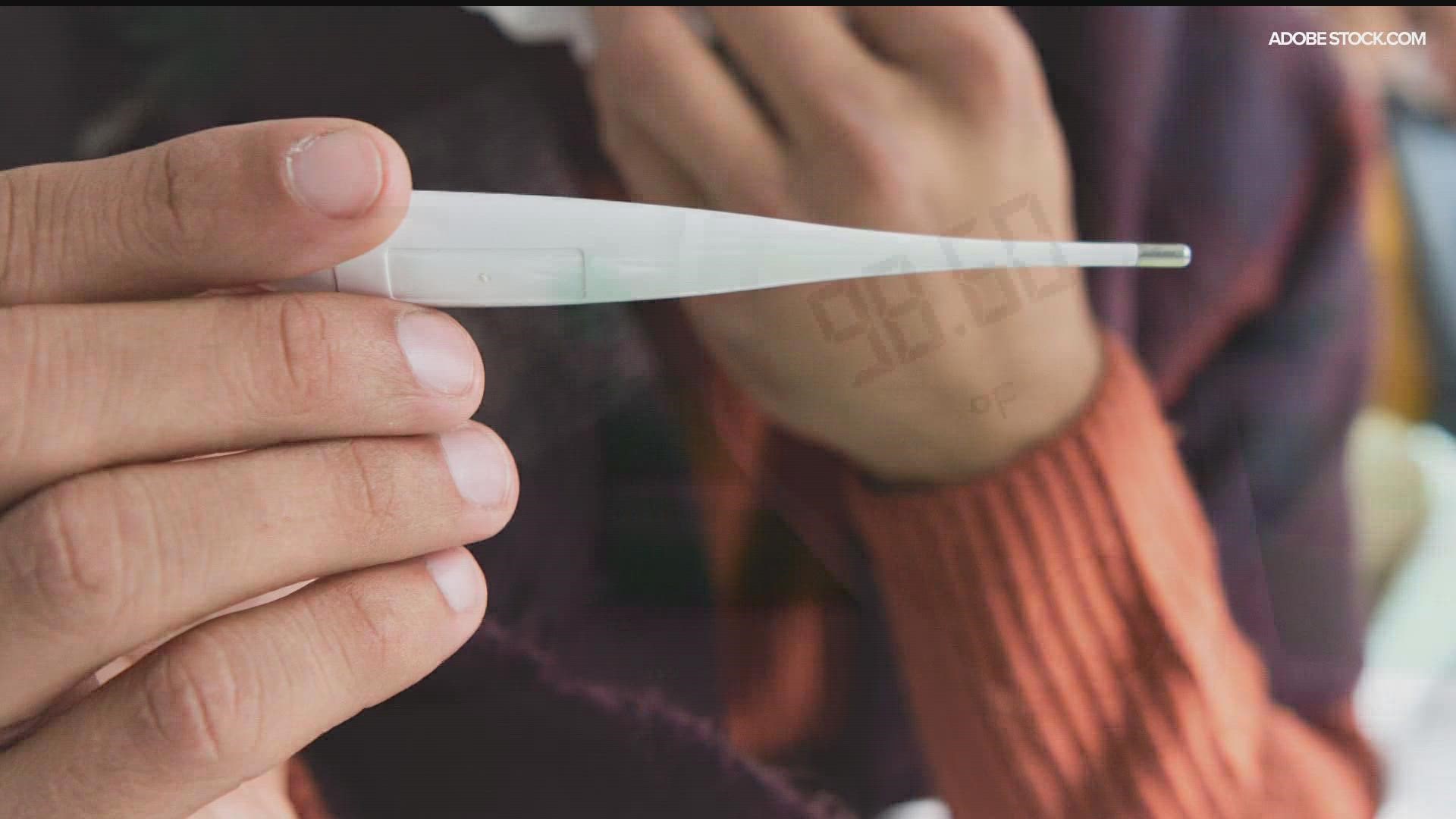RAMSEY, Minn. — When your child is sick it can be terrifying for any parent. For a lot of parents, the thermometer is their only "scientific" tool to use to see if their kid has a fever. So how accurate are the different kinds of thermometers and which one is best?
For that answer, KARE 11's Alicia Lewis visited Dr. Eric Barth, a pediatrician at Allina Health in Ramsey.
"There are two different types of thermometers in general," said Dr. Barth. "There are contact thermometers that have heat sensor that measure the temp and give an electronic readout usually to the 10th of a degree and then there are infrared sensors that are no contact that use an infrared sensor that can measure the temp without contact to the body."
Dr. Barth and I decided to run a very scientific experiment (okay, not really that scientific) but we wanted to test four different thermometers to see how they read.
We first tested an infrared contactless thermometer that gained popularity during the COVID-19 pandemic.
Our reading was 97.3F
Next we tried another no-contact infrared thermometer meant for infants. The reading was 97.9F.
After that, we tried the clinic's ear thermometer which read 98.2F.
Last up, the one we're used to seeing at the doctor's office, the oral thermometer which read 97.7F.
If you're keeping track, none of our thermometers had the same reading. So what did we learn from this?
"The most accurate temperature is going to be a rectal temp, so getting a contact thermometer that has a heat sensor that can be used as a rectal measurement is probably the most accurate," said Dr. Barth.
We skipped that test for obvious reasons.
Parents don't like having to use rectal thermometers either, which is why Dr. Barth says parents should keep two thermometers and only use the rectal one when necessary.
So what temperatures are cause for concern? Dr. Barth says it depends on the age.
"An infant 3 months and younger, 100.5F or greater is a fever and should be checked out. For an older child, preschool, low-grade is under 102F. A low-grade temp for that age of a child, if it's over 102F call your clinic if it's 104F or greater could be more significant so go to urgent care," said Dr. Barth.
The BIGGEST THING Dr. Barth says NOT to do... don't add or subtract degrees to the thermometer reading. The best thing to do is to report the temp and how it was taken.
Watch more KARE11 Sunrise:
Watch the latest coverage from KARE11 Sunrise in our YouTube playlist:

